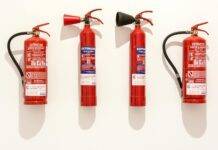
Chemical Safety Quiz 2024
Chemical safety is a critical aspect of numerous industries, ensuring the well-being of workers and the environment. Understanding the risks associated with handling various chemicals is paramount to maintaining a safe workplace and preventing environmental hazards.
Introduction to Chemical Safety
Chemicals are an integral part of various industries, from manufacturing to healthcare. However, their mishandling can pose severe risks to individuals and the environment. Chemical safety protocols are designed to mitigate these risks and ensure safe handling, storage, and disposal of hazardous substances.
Chemical Safety Standards and Regulations
Numerous regulatory bodies establish guidelines and standards to govern the handling and usage of chemicals. Compliance with these regulations is mandatory for industries to prevent accidents and protect employees’ health.
Common Chemical Hazards
Chemical hazards come in various forms, including toxic, corrosive, and flammable substances. Understanding these hazards and their potential health risks is crucial in minimizing accidents and ensuring safety protocols are followed.
Personal Protective Equipment (PPE)
Personal Protective Equipment (PPE) plays a pivotal role in shielding individuals from chemical exposure. Equipment like gloves, goggles, masks, and suits act as barriers against potential hazards.
Chemical Storage and Handling Practices
Proper storage and handling of chemicals are fundamental in preventing accidents. Adhering to best practices reduces the likelihood of spills, leaks, or reactions that could endanger lives and the environment.
Emergency Response and First Aid
In the event of chemical exposure or accidents, knowing the appropriate response procedures and first aid measures can mitigate the impact and ensure timely medical attention.
Chemical Safety Quiz: Understanding the Basics
A chemical safety quiz serves as an educational tool to gauge knowledge and understanding of safety protocols. Sample questions can cover various aspects of handling chemicals safely.
Here are some multiple-choice questions (MCQs) on chemical safety quiz 2024:Question 1: What does SDS stand for in chemical safety?
A) Safety Data Sheet
B) Secure Data System
C) Substance Danger Standard
D) Safety Deployment System
Answer: A) Safety Data Sheet
Question 2: Which symbol is used to indicate a substance is corrosive?
A) Skull and Crossbones
B) Flame
C) Exclamation Mark
D) Corrosion Symbol
Answer: D) Corrosion Symbol
Question 3: What is the purpose of Personal Protective Equipment (PPE) in handling chemicals?
A) To make the job more comfortable
B) To comply with fashion standards
C) To reduce exposure and protect from hazards
D) To increase visibility in the workplace
Answer: C) To reduce exposure and protect from hazards
Question 4: What should you do in case of a chemical spill?
A) Wait for someone else to handle it
B) Contain the spill if safe to do so, then inform the supervisor
C) Ignore it if it’s a small spill
D) Continue working, it’s not your responsibility
Answer: B) Contain the spill if safe to do so, then inform the supervisor
Question 5: Which type of fire extinguisher is suitable for use on flammable liquid fires?
A) Class A
B) Class B
C) Class C
D) Class D
Answer: B) Class B
Question 6: What does the NFPA 704 diamond-shaped label indicate?
A) Health hazard
B) Radioactive material
C) Fire hazard
D) Biohazard
Answer: C) Fire hazard
Question 7: How should chemicals be stored to ensure safety?
A) In any available empty space
B) In a cool, dry, well-ventilated area, following compatibility guidelines
C) Mixed together to save space
D) On the floor for easy access
Answer: B) In a cool, dry, well-ventilated area, following compatibility guidelines
Question 8: What does TLV stand for in chemical safety?
A) Toxic Level Volume
B) Total Lethal Volume
C) Threshold Limit Value
D) Technical Laboratory Validation
Answer: C) Threshold Limit Value
Question 9: What should you do if you accidentally inhale chemicals?
A) Wait for symptoms to appear
B) Move to a well-ventilated area and seek medical attention
C) Panic and run around
D) Ignore it, it’s probably harmless
Answer: B) Move to a well-ventilated area and seek medical attention
Question 10: What is the first step in handling chemicals safely?
A) Read the labels and SDS
B) Use them quickly to avoid spills
C) Guess their purpose based on appearance
D) Wear PPE at all times
Answer: A) Read the labels and SDS
Importance of Regular Training and Education
Continuous training and education programs are vital in keeping employees updated on safety measures and promoting a culture of safety within organizations.
Creating a Culture of Safety
Fostering a mindset that prioritizes safety involves the collective effort of every individual in an organization. Involving teams in maintaining safety standards enhances overall compliance.
Environmental Impact of Chemicals
Improper handling or disposal of chemicals can have detrimental effects on the environment. Implementing sustainable practices minimizes these impacts and promotes eco-friendly approaches.
Measuring and Evaluating Chemical Safety
Establishing metrics for assessing safety levels and conducting regular evaluations ensures ongoing compliance and identifies areas for improvement.
Global Efforts Towards Safer Chemical Handling
International collaborations and initiatives aim to standardize safety practices globally, impacting industries worldwide and promoting safer chemical handling.
Conclusion
Chemical safety is not just a regulatory requirement but a moral obligation to ensure the well-being of individuals and the environment. Prioritizing safety measures through education, training, and technological advancements is crucial in preventing accidents and fostering a culture of safety.
Slip Trip and Fall Safety Quiz
Personnel Protective Equipment Safety Quiz
FAQs
- Why is chemical safety important? Chemical safety is crucial to protect individuals from health risks and prevent environmental hazards associated with mishandling chemicals.
- What are the key components of chemical safety protocols? Key components include proper storage, handling, usage of PPE, emergency response procedures, and regular training.
- How does technology contribute to chemical safety? Technological advancements provide tools for monitoring, early detection of hazards, and improving safety measures in handling chemicals.
- Who is responsible for ensuring chemical safety in industries? Everyone in an organization shares the responsibility, from management enforcing protocols to employees adhering to safety measures.
- What are the consequences of neglecting chemical safety? Neglecting chemical safety can lead to accidents causing injuries, health issues, environmental pollution, and legal liabilities.






















Quiz